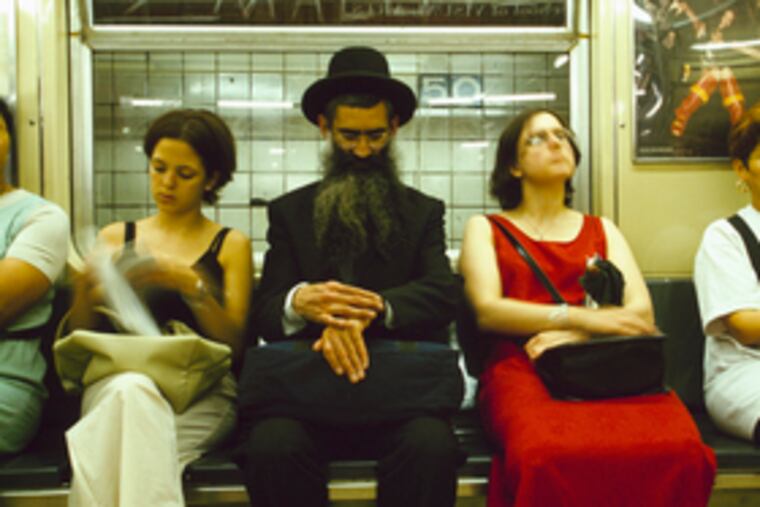Assimilation and its barriers
Comedian Carl Reiner is a famously funny man. But on the phone from his home in Los Angeles, chatting about The Jewish Americans, the fascinating three-part documentary that debuts tonight (at 9, WHYY TV-12), he is a seriously funny man, blending humor and insight about 350 years of Jewish history in the United States.

Comedian Carl Reiner is a famously funny man.
But on the phone from his home in Los Angeles, chatting about
The Jewish Americans
, the fascinating three-part documentary that debuts tonight (at 9, WHYY TV-12), he is a
seriously
funny man, blending humor and insight about 350 years of Jewish history in the United States.
"There are some revelations in there. Judah Benjamin, a slave owner and Southern Jew fighting for the Confederacy?" said Reiner, his voice rising with a touch of puzzlement that leaves unsaid, "Who knew?"
Beginning with the arrival of a handful of Jews in the 1700s, the six-hour film, which airs over three consecutive weeks, traces the growth of American Jewry to today's six million. It details the role of Jews in the Revolutionary War, the settling of the West and the Civil Rights movement, among other eras.
It includes interviews with Supreme Court Justice Ruth Bader Ginsburg;
Driving Miss Daisy
playwright Alfred Uhry; early television icon Sid Caesar; actor Mandy Patinkin; cartoonist Jules Feiffer; Ms. magazine cofounder Letty Pogrebin; black-activist-turned-observant-Jew Julius Lester, and rapper Matisyahu, the hip-hop Hasid.
Although wide-ranging, the series is fundamentally an immigration story about the tug-of-war between the desire to assimilate and the effort to retain one's cultural identity.
"All immigrations are similar, in that people come looking for a better place," said Reiner, 86, who appears in the second installment and whose parents came to America from Eastern Europe around 1906.
"That was true of the Jews, too. A better life - and no anti-Semitism."
Obviously there's no escaping that ugly topic, which even seeped into show business.
Reiner relates how Jewish-accented comedy - common on the radio before World War II - virtually disappeared in the 1940s as European Jews were marched to Nazi death camps.
It came back in the late 1950s "with Myron Cohen on
The Ed Sullivan Show
," he said.
But dialect humor remained so sensitive that he and Mel Brooks had to think twice a few years later when they recorded an album of
The 2000-Year-Old Man
, their uproarious skit punctuated with Brooks' Jewish accent and Yiddishisms.
"We knew it was hilarious," said Reiner. "But we didn't want to feed the flames of anti-Semitism."
David Grubin, the writer and director of
The Jewish Americans
, is a member of the executive committee of the Society of American Historians. Winner of numerous Emmy, Peabody and Alfred I. duPont awards, he has produced more than 100 films.
For this latest work, which took three years to make, Grubin focuses on the achievements of such Jewish pioneers as Louis Brandeis, the first Jew nominated to the U.S. Supreme Court, and Bess Meyerson, who in 1945 became the first Jewish Miss America. Grubin also documents the price Jews have paid to achieve acceptance.
Especially memorable is the segment on Irving Berlin, the Russian-born son of a synagogue cantor, who came to America and wrote the secular Christmas carol "White Christmas" and the flag-waving standard "God Bless America."
For Berlin and other Jews who rose to prominence, there was always the question: Could they cling to their religious-cultural roots and still rise?
Reiner, a self-described "Jewish atheist," who believes "man invented God," not the other way around, thinks Jewish cultural identity is nonetheless something to be treasured.
"Any kind of full assimilation is never a triumph," he said. "There are certain things that should remain because there is a richness to them," like a flavorful sprinkling of Yiddish words into everyday English.
"You can't beat
schmatte
," he said. "It's onomatopoeic. It sounds like what it is.
Rag
just isn't frayed enough."
.